There is a lot of talk online about baking soda being used to kill bed bugs… does it work?
No, baking soda does not kill bed bugs. While it might slightly irritate bed bugs, the idea that it can be used to get rid of a bed bug infestation is a myth.
Here is everything that you should know.
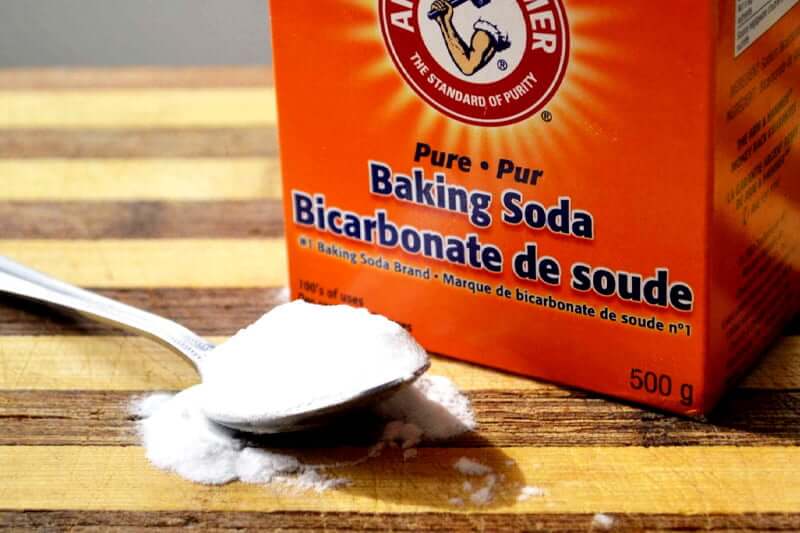
While there is a possibility that baking soda can kill bed bugs, it hasn’t been proven to do so reliably. Therefore, if you have bed bugs in your home, banking on a solution that hasn’t been proven to work is not prudent.
The following are techniques and chemicals that have been proven to kill bed bugs. Using them instead of relying on baking soda is, thus, advisable.
Washing and Heat-Drying
Heat is an effective bed bug killer.
Therefore, you can get rid of an infestation by exposing them, for about 60 minutes, to temperatures that exceed 113 degrees Fahrenheit. You can get instant results if you use 140 degrees Fahrenheit.
To kill bed bugs, you can:
- wash your bedding and clothes in extremely hot water
- put them in a dryer and set it at the highest possible setting
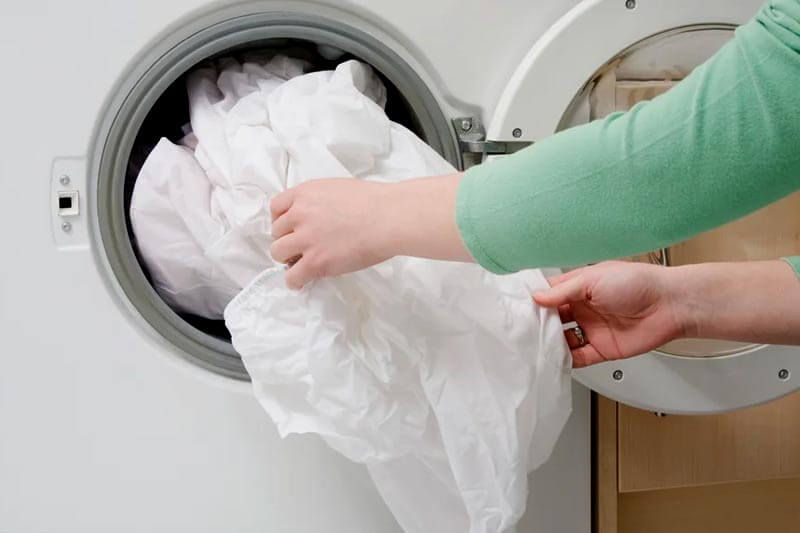
Steaming
Bed bugs, and their eggs, die when exposed to temperatures that range between 113°F and 118°F.
Therefore, you can kill any that are in your home by exposing them to steam. All you have to do is steam your bed frames, sofa seams, corners, carpets, table joints, and any other place where the bed bugs may be hiding.
This is among the most effective ways of killing bed bugs instantly.
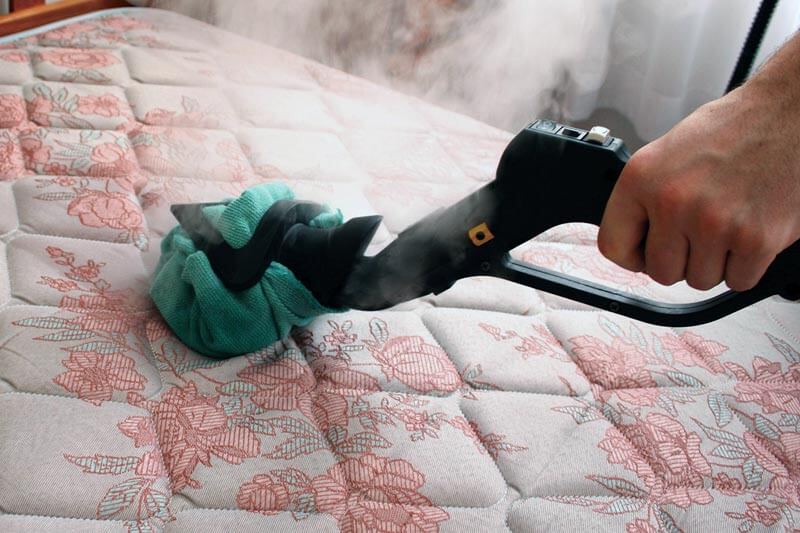
Paraffin Oil
Rutgers University entomologists who were conducting research on the effectiveness of oils in killing bed bugs found paraffin oil to be effective. This is because it suffocates the bed bugs and hence kills them.
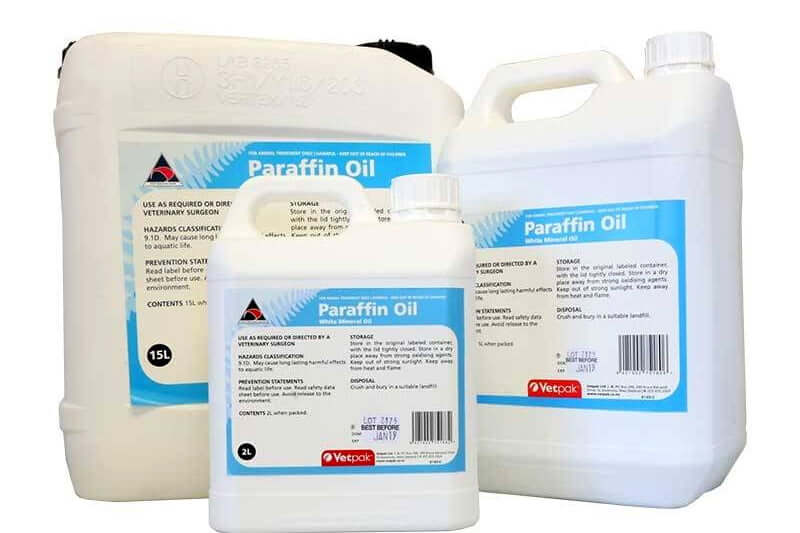
Rubbing Alcohol
Studies show that rubbing alcohol has a 50% chance of killing bed bugs when it is applied directly. Therefore, it is a natural way of killing bed bugs.
However, it tends to be challenging to eradicate an infestation with rubbing alcohol. Why? Because bed bugs tend to hide in hard-to-reach areas.
And so, you will have a harder time killing them since the alcohol needs to be applied directly to the bed bugs. This, in addition to the fact that rubbing alcohol doesn’t kill eggs, makes it a less-than-perfect solution for completely getting rid of bed bug infestations.
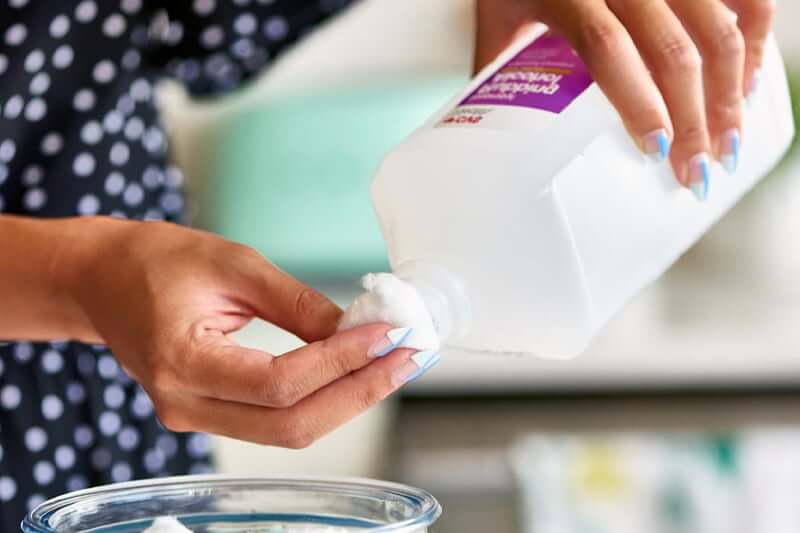
Insect Interceptors
You can also use insect interceptors to protect yourself against bed bug bites.
These are an upgrade over the traditional double-sided tape method. Most of them contain a mechanism for trapping the insects and also one for keeping them from escaping. This may involve using a trap that is lined with talcum.
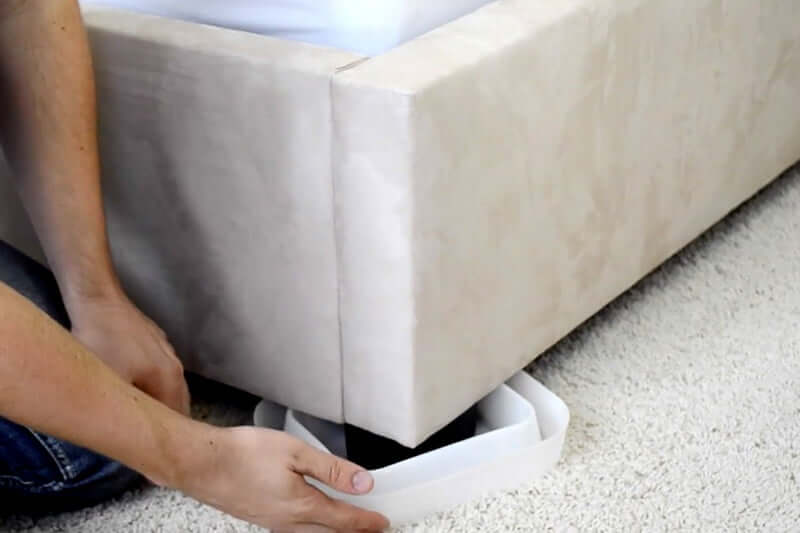
Diatomaceous Earth
Diatomaceous earth is effective against bed bugs. It works by cutting into their exoskeleton. It accelerates the rate at which they become dehydrated. And this is often enough to kill bed bugs within 48 hours.
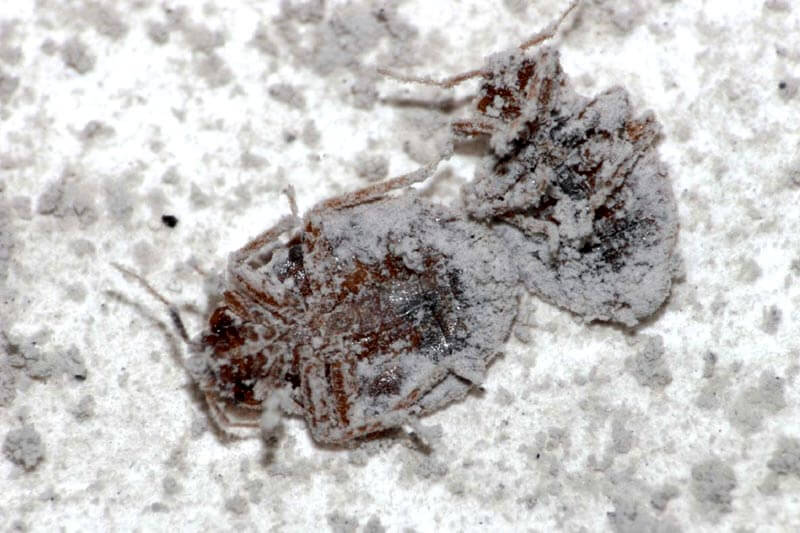
Notable Mentions
Although some methods of eradicating bed bug infestations can work, they are usually not effective enough to depend on. They include the following.
Tape or Vaseline
When you place double-sided tape at the legs of your bed, it will trap any bed bugs that try to climb up the bed. Vaseline also works as an effective trap.
Unfortunately, if you already have a bed bug infestation, chances are that bed bugs don’t have to climb up your bed in order to bite. Some already exist in crevices and corners in your bed.
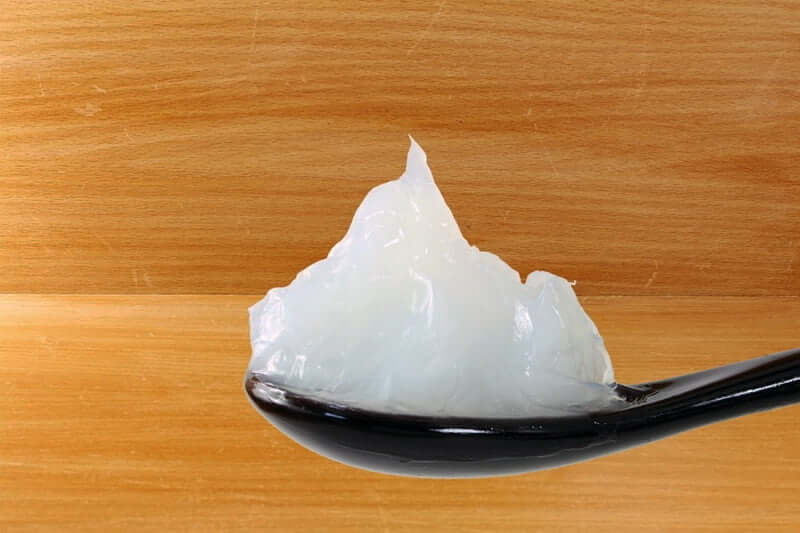
Ultrasonic Devices
While some people swear about their efficacy, a study that was published in the Journal of Economic Entomology showed that they don’t have any significant effect on bed bugs. Therefore, relying on them to keep your loved ones safe from bed bugs is a bad idea.
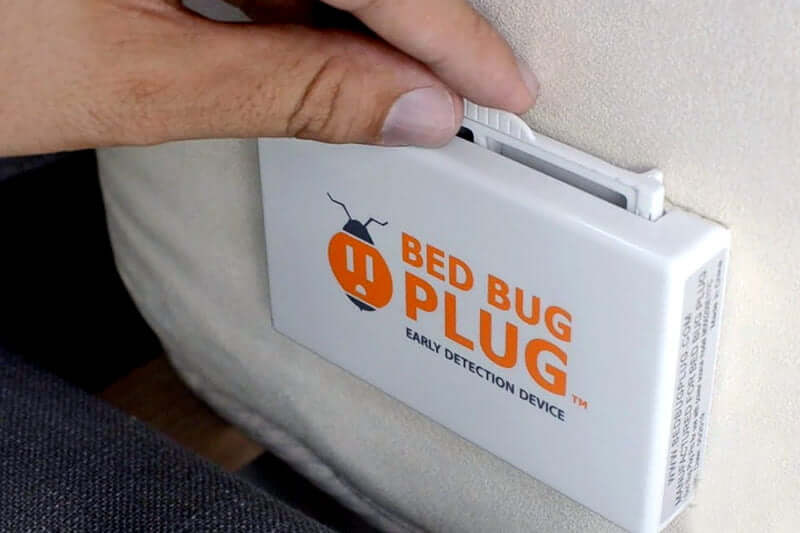
Vacuuming
You can get rid of bed bugs by simply vacuuming. The vacuum will suck the bed bugs off your carpets, beds, chairs, and you will then dispose of them.
However, vacuuming alone is never enough to completely get rid of an infestation. This is because bed bugs hide in crevices and other hidden spaces that are not easy to vacuum. Your vacuum is thus unlikely to suck all of the eggs and bed bugs from your home. Furthermore, vacuuming does not kill bed bugs.
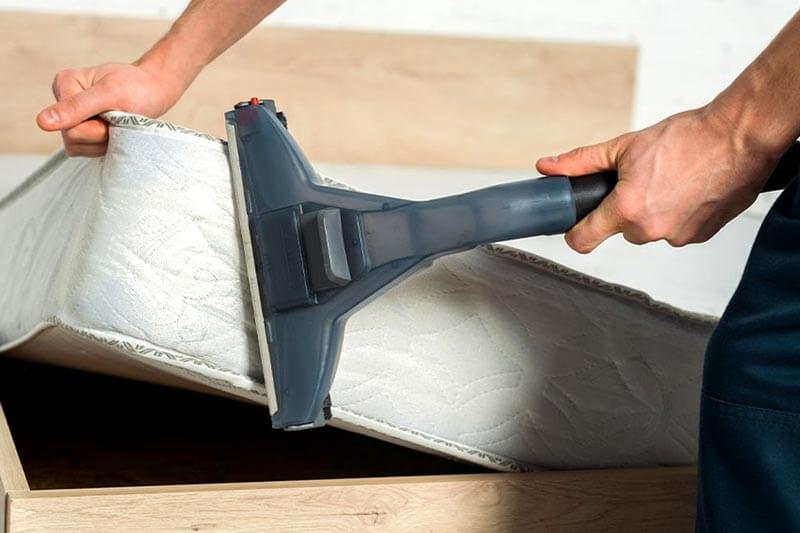
Use This Free Service To Find a Good Pest Control Service Near You
If you need help killing bed bugs, you should use GoTreeQuotes.com. It offers a free service that quickly matches you with the top-voted local experts in your area.
Using the website, you can get 3 estimates fast by real certified experts in your area in just 2 minutes. Here is how it works.
- You scroll to the top of the page and enter your Zip code.
- Answer questions about your bed bug problem
- Your details will be forwarded to three local experts.
- You will then receive a price estimate for the job and some friendly advice.
IMPORTANT: There is no obligation to hire. This is a free tool and service to be used at your pleasure.
Why Do Most DIY Enthusiasts Believe That Baking Soda Can Kill Bed Bugs?
There isn’t any scientific evidence to support the belief that baking soda can kill bed bugs. But why do so many people believe that it can?
Here are the main reasons.
It Is a Desiccant
Baking soda is a natural desiccant. This means that it is good at absorbing moisture from surfaces.
The belief is that when you apply it to the bedbug-infested area, it will dehydrate and kill any bedbugs in the area.
It Is Abrasive
Baking soda is usually so good at removing stains, neutralizing smells, and killing unwanted growths because it is abrasive. It should be possible to count on this abrasiveness when it comes to killing off bed bugs.
It Works Because It Usually Works
Baking soda usually works so well at solving problems around the home that some homeowners believe that it should be able to solve a bedbug problem.
It Is Safer
Generally, baking soda doesn’t have a negative effect on loved ones. Therefore, some homeowners are willing to forego a little effectiveness for the sake of safety. To them, the promise that it might work is sometimes enough to get them to take the jump.
Unfortunately, there is no scientific evidence that these assumptions hold up. And even if there is a chance that baking soda can actually affect bed bugs negatively, this effect is, at best, a mild irritation at best. This is simply because baking soda isn’t effective when it comes to eradicating full-blown bed bug infestations.
Why Shouldn’t You Use Baking Soda To Kill Bed Bugs?
You shouldn’t use baking soda you get rid of bed bugs because
There Is No Scientific Evidence That It Works
Even if it were to work, it wouldn’t be potent enough to kill the bed bugs instantly. This will mean your loved ones will suffer for way longer than they have to.
It Is Cumbersome
This is because you have to apply the baking soda, vacuum the area, and then repeat the process until you eliminate any traces of bed bugs. The process can take quite a while. It will also require a lot of repeating.
It Is Messy
It usually involves applying a paste or sprinkling a white powder onto your bed, carpet, chairs, couches, and other valuable fixtures. It may also involve piling the baking soda at the foot of beds, cabinets, chairs, and other fixtures. All of these things leave a lot of mess behind.
It Is Uneconomical
For it to even have any possibility of working, you have to use a large amount of baking soda. And even though baking soda is relatively affordable, it is an extremely inefficient way of getting the job done. Why? Because there are more effective techniques and methods of getting the job done.











